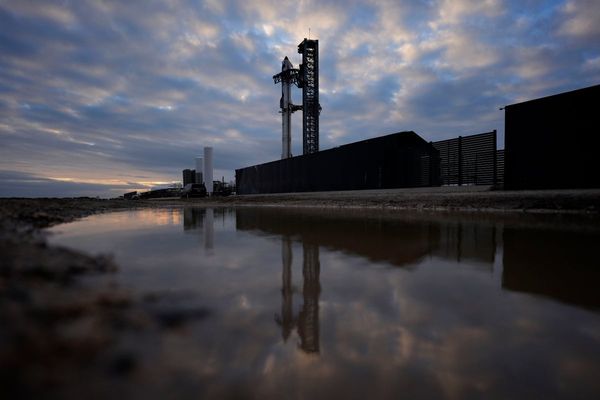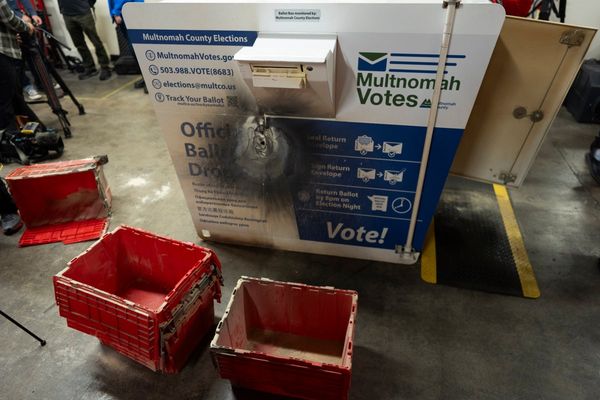What's next, locusts?
That was the thought that popped into my head back in January, when I read about the latest trouble Rams owner Stan Kroenke had encountered during a SoFi Stadium project in Inglewood that has produced massive cost overruns and countless Kroenke headaches since shovel first met dirt.
That January headline was a lawsuit between Kroenke-owned companies and an insurance firm that dealt with the removal of arsenic from the stadium development site.
It updated the running list of setbacks to (deep breath here): a beef with the Federal Aviation Association about the stadium being too close to the Los Angeles International Airport; an uncharacteristic period of rain that turned an excavation hole into a 15 foot lake; and a portion of the site where a parking lot and hotel are supposed to go that tested too high for arsenic, leading to 83,000 tons of soil being removed.
Kroenke agreed to fork over $29 million to buy the airport a secondary tracking system that will keep his stadium from scrambling the current radar for incoming planes. The excavation lake disaster cost construction crews weeks of work days and was cited as the main reason the stadium's opening and all the revenue that would have come with it got pushed back a year. The arsenic-related lawsuit is attempting to get $5 million from the insurance company that paid less than $500,000 for a cleanup effort that cost about $17 million.
And these are just the headliners.
Kroenke initially thought his self-financed stadium that freed him from small-time, shortsighted St. Louis would cost something like $1.86 billion. He adjusted the number to $2.4 billion in late 2015. It's approaching $6 billion now, if it hasn't outgrown that already.
And there's a brand new headache. A serious one.
Here's the latest headline in the Los Angeles Times: "Coronavirus invades SoFi Stadium construction as a dangerous dilemma is building."
One construction worker at the site has tested positive for COVID-19, while another is awaiting official results while showing signs of the virus. An unspecified number of other workers are being told to self-quarantine. Non-essential staff members have been told to work from home, and some tasks are not able to be completed at this time, reports the Orange County Register.
An estimated 3,000 people continue to work on the site, which is now set to open to the public in late July. California, like most states that have issued stay-at-home mandates during the coronavirus pandemic, exempts construction projects and workers from the order.
It's not hard to imagine that being reexamined in this case.
Especially as these quotes make the rounds.
"If our safety was the most important thing, they wouldn't have us out here," one worker told the Times. "Everybody is talking about it. Your focus isn't 100% on your work. You have that in the back of your head. We feel like we're invisible."
The Times also found that a union worker posted a photo of the job site to social media last week, calling it the "most populated job site I've myself been on in my 39-year career."
Confirmed cases of coronavirus in California have reached 7,400-plus as of Tuesday morning, according to the San Francisco Chronicle.
Those quotes from the stadium workers are going to land a spotlight on Stan's stadium construction.
I'll ask again.
When do the locusts arrive?







